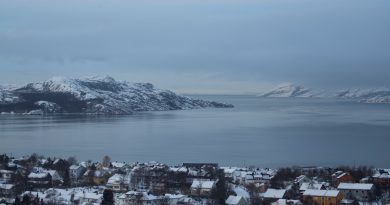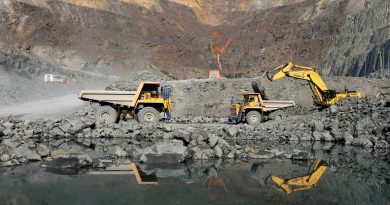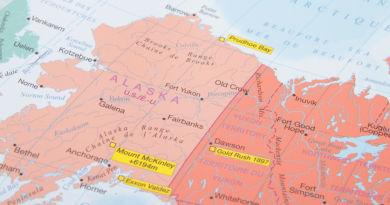Canadian FedElxn 2019: 800 candidates, 40,000 tweets…. but only 7 mention Inuit? What gives?
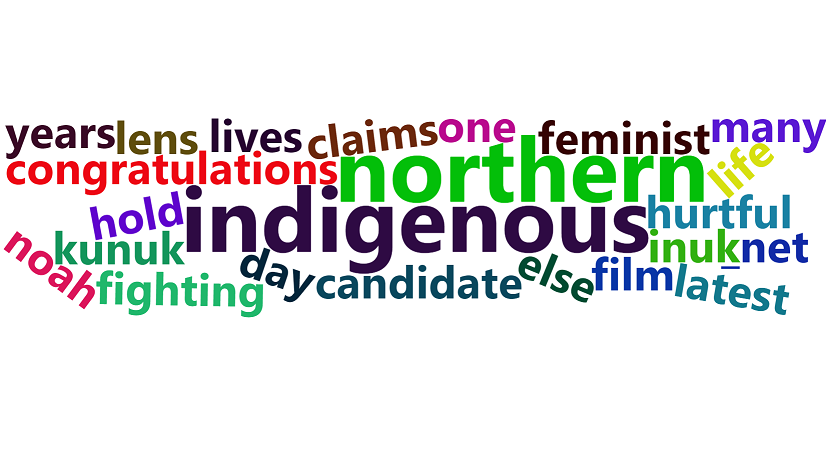
A team of Canadian researchers analyzing candidate tweets on Inuit, Métis and First Nations issues during the current federal election campaign are finding that, as of October 15, approximately only 2 per cent of candidate tweets concerned Indigenous issues.
“What we’re observing is that, of the accounts we’re tracking, Indigenous issues are barely talked about,” said Mathieu Landriault, from Montreal’s Observatoire de la politique et la sécurité de l’Arctique (Arctic Policy and Security Observatory) at the University of Quebec in Montreal, and one of the team members.
And when it comes to Arctic Indigenous issues, the picture was even more dire.
“We found only seven tweets from candidates that mention the term Inuit, or terms associated with Inuit people, and that’s seven out of approximately 40,000 tweets as of October 15,” Landriault said in a phone interview with Eye on the Arctic.
Things didn’t get much better even when tracking different kinds of terms.
“When we expand things a little to look at for example the term ‘northern’ and the term ‘Indigenous’ together, it’s very little again,” Landriault said. “We found 12.”
“There doesn’t seem to be a whole lot of attention given to the North in general, and even less to Inuit people.
“Two percent of all tweets that we track were about Indigenous issues, so for Inuit issues it’s a tiny fraction of that two percent.”

The project, The Attention Paid to Indigenous Issues on Twitter by Candidates in Federal Elections, is a new interactive tool, and is funded by the Digital Ecosystem Research Challenge.
Besides Landriault, the other team members include Jean-Francois Savard from Quebec’s École nationale d’administration publique (The University of Public Administration), Christian Rock, a member of the Innu Nation, and Isabelle Caron from Dalhousie Univeristy in the Atlantic Canadian province of Nova Scotia.
To keep the data set consistent, the team is examining only tweets by the approximately 800 candidates from the five major political parties that had Twitter accounts at the start of the election campaign. Candidates that declared after the start date, or candidates that didn’t set up Twitter accounts until after the campaign had already begun, aren’t included in the analysis.
The five parties tracked are the Liberal Party, Conservative Party, the New Democratic Party, the Green Party, and the Bloc Quebecois.
The interactive tool is free and open to the public and allows users to monitor everything from word and hashtag frequency to the number of likes and retweets, in either English or French, Canada’s other official language.
Users can further explore the data by political party, province and territory, gender, and date.
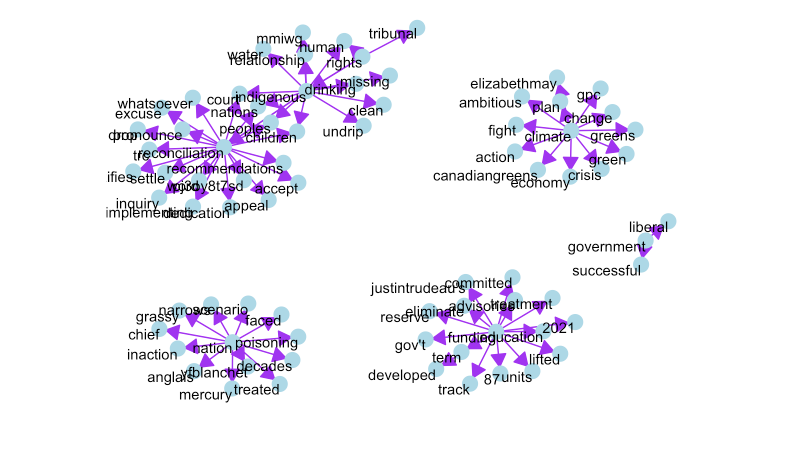
The project also issues a weekly report analyzing the most popular words used by candidates on Twitter, which party is tweeting most about Indigenous issues, and which words are paired most with the word ‘Indigenous’ in tweets.
An end of campaign report on the project’s five weeks of data will be released on Friday, October 18.
After the election, the data will be used to write peer-reviewed articles.
The Digital Ecosystem Research Challenge is overseen by Elizabeth Dubois, an assistant professor in the Department of Communication and a Centre for Law, Technology and Society at the University of Ottawa and Taylor Owen, associate professor in the Max Bell School of Public Policy, at McGill University in Montreal and was set up to explore digital media’s impact on the 2019 federal election campaign.
In total, the Digital Ecosystem Research Challenge made 18 research awards covering everything from political advertising to immigration and environmental politics.
Canadians go to the polls on October 21.
Write to Eilís Quinn at eilis.quinn(at)cbc.ca
Related stories from around the North:
Canada: Canadian elections: The unique challenges of running in a northern riding, CBC News
Finland: Sámi Parliament of Finland torn on local rights, urban influence, Yle News
Norway: Political earthquake shakes up Northern Norway, The Independent Barents Observer
Russia: Career diplomat to represent Murmansk region in Russian senate, The Independent Barents Observer
Sweden: Sweden’s FM calls for more EU involvement in Arctic as country hosts EU Arctic Forum, Radio Sweden
United States: Finnish and US Presidents agree on Arctic security policies, Eye on the Arctic

